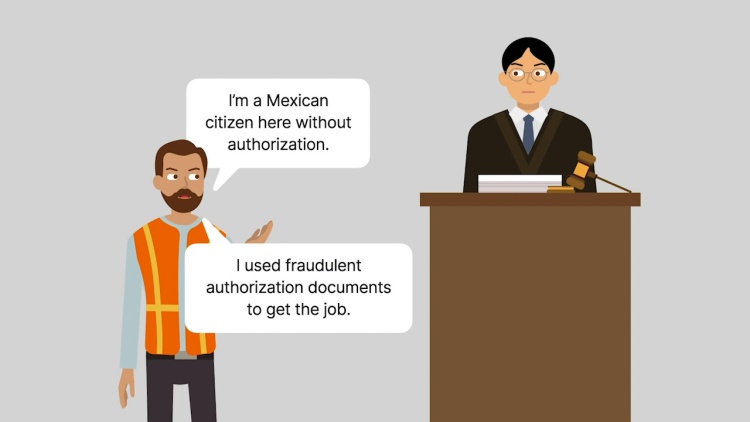Hoffman Plastic Compounds, Inc. v. National Labor Relations Board
United States Supreme Court
535 U.S. 137, 122 S.Ct. 1275, 152 L.Ed.2d 271 (2002)
- Written by Christopher Bova, JD
Facts
Hoffman (defendant) hired Castro to operate machinery in its plant. Castro provided documents verifying his authorization to work in the United Sates before starting work. A year later, Hoffman laid off Castro and three other employees who were known union supporters. The National Labor Relations Board (NLRB) found that Hoffman had laid off the employees in violation of the National Labor Relations Act (NLRA) and ordered that Hoffman offer reinstatement and back pay. At a hearing before an administrative law judge to determine the amount of back pay, Castro admitted that he fraudulently obtained a driver’s license and Social Security card and was not authorized to work in the United States. The judge found that back pay could not be awarded to Castro because of the Immigration Reform and Control Act (IRCA), which makes it unlawful for employees to use fraudulent documents to show work authorization. Four years later, the NLRB determined that back pay should be ordered from the date of termination to the date Hoffman first learned that Castro was not authorized. Hoffman filed a petition to review with the Court of Appeals, which denied the petition twice. The Supreme Court granted certiorari on Hoffman’s appeal.
Rule of Law
Issue
Holding and Reasoning (Rehnquist, C.J.)
Dissent (Breyer, J.)
What to do next…
Here's why 910,000 law students have relied on our case briefs:
- Written by law professors and practitioners, not other law students. 47,100 briefs, keyed to 997 casebooks. Top-notch customer support.
- The right amount of information, includes the facts, issues, rule of law, holding and reasoning, and any concurrences and dissents.
- Access in your classes, works on your mobile and tablet. Massive library of related video lessons and high quality multiple-choice questions.
- Easy to use, uniform format for every case brief. Written in plain English, not in legalese. Our briefs summarize and simplify; they don’t just repeat the court’s language.





